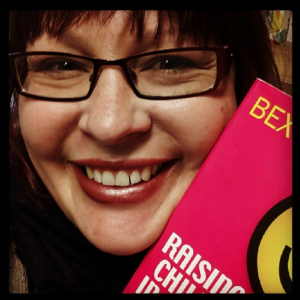I spoke to Lorraine Candy about Sharenting, after she had seen my piece in City Parents on the same topic. If you are a subscriber to The Times, you can see the whole piece here, otherwise I have this extract:
For those who want to know more, the questions I was asked/my responses:
Contents
- 1 1) In your experience what are the right things to share and what is wrong to share of your teenagers?
- 2 2) How do you navigate this with a teenager because mine spend all day photographing their foreheads it seems on snapchat and posting occasionally on their own Insta but they are very strict about me having a social media account and sharing them, surely there has to be some give? Also I am always telling them off for putting our 7yo up on their social media without permission or indeed tricking her into it!
- 3 3) How will this change over the years - will we just all become private accounts?
- 4 4) What constitutes permission - because at 15 for example are they truly aware of the longevity of these pictures they say yes to?
- 5 5) As you are (like me) very positive about our digital future how do you think our children will be when they have children after all we didn’t have social accounts when I first got pregnant!
- 6 You may also be interested in:
This is where a family social media agreement could come into it .. an agreement, based on conversation, suited to your family (are lots of examples online), about what kind of content, what is ok at what age, and that they don’t necessarily get to call all the shots - so some kinds of photos you can share, and they cannot expect to have rights if they are not giving respect to you/7 year old. Agreement could include taking phone away for increasing amount of time if rukes are breached, etc,. Teenagers have always done weird things (and like testing boundaries) .. check out TiK-Tom for the challenges that they set each other … they make very little sense to others. Most of these challenges are very harmless, but if part of the family conversation is what did you share, what did you enjoy, especially if this habit is formed at a younger age, it doesn’t fit the narrative they are always been given by the media that we should be getting kids off phones… see the recent report by @MHC_UK on no #phonezombies.
3) How will this change over the years - will we just all become private accounts?
There is definitely a bigger move towards private accounts (sometimes known as dark social, because it’s not accessible/measurable by others), and has been for the last Couple of years, and much more thought about what is presented publicly. I do have reservations about this as there’s then a pressure to present a ‘perfect life’ online (at all ages) in the public spaces, but then we have always had huge numbers of private conversations (just not online), and maybe this provides space to feel more open/share - there are big questions about trust/presentation online, and younger people are still very much finding their way in the world and wanting to experiment with their personal presentation.
4) What constitutes permission - because at 15 for example are they truly aware of the longevity of these pictures they say yes to?
I think that life has always changed, and there’s the fact that 10 years ago social media was very different from what it is now (eg Snapchat was fairly new when I wrote book in 2015 - younger liked it because could delete images, and noticed that younger users even now delete a lot of their instagram posts), there have been challenges for every generation to face. I think digital and social media offers a lot of opportunities if we (inc the media) can move away from the default mode that digital is bad/dangerous/addictive, etc The software companies do want us to spend more time online (as they are funded by advertising), and within a capitalist model this isn’t going to change any time soon, but I think there’s more about the fact that young people (and older) find good content online, they connect with friends, and yes, probably find some joy in a world that feels very split, and rather despairing about the future.
Full article:
Digiexplorer (not guru), Senior Lecturer in Digital Marketing @ Manchester Metropolitan University. Interested in digital literacy and digital culture in the third sector (especially faith). Author of ‘Raising Children in a Digital Age’, regularly checks hashtag #DigitalParenting.

One thought on “[MEDIA] Quoted in @thesundaytimes, talking about #Sharenting”